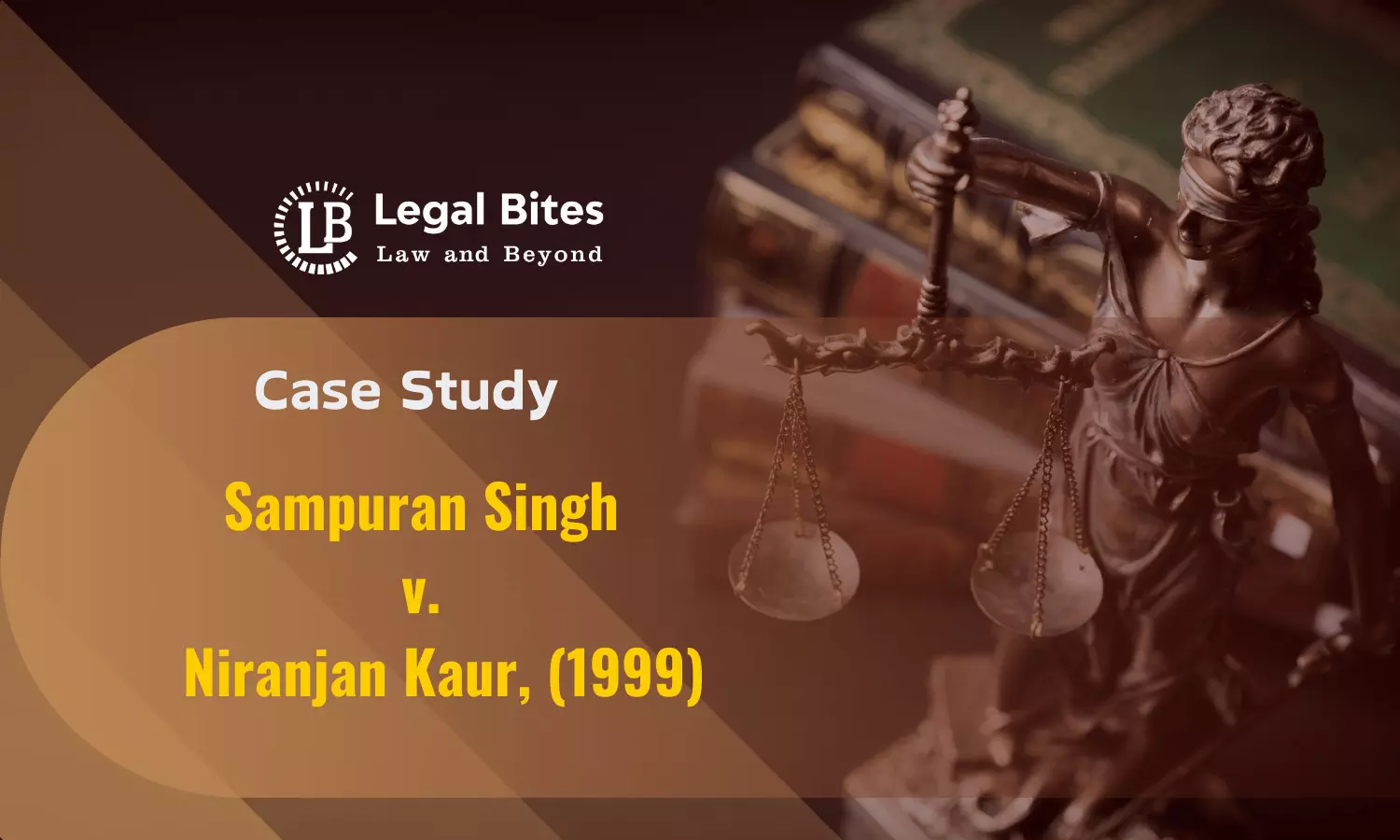Case Study: Sampuran Singh v. Niranjan Kaur, (1999) | Limitation Period for Redemption
The case Sampuran Singh v. Niranjan Kaur (Smt.) pertains to the limitation period for the redemption of the original mortgage document.

The case Sampuran Singh v. Niranjan Kaur (Smt.) pertains to the limitation period for the redemption of the original mortgage document.
Case Title: Sampuran Singh v. Niranjan Kaur (Smt.)
Court: Supreme Court of India
Citation: Appeal (Civil) 4544 of 1984
Petitioner: Sampuran Singh and Ors.
Respondent: Niranjan Kaur and Ors.
Bench: Justice A.P. Misra, Justice N. Santosh Hegde
Date of Judgment: 23/02/1999
Facts
In the year 1893, an oral mortgage deed for the sum of Rs. 53 had been executed. The original mortgagee under this deed had sold his rights of mortgagee in the year 1960 through the medium of a registered deed. The respondents had purchased the said rights. The appellants in the case had bought the land involved in the said suit in the year 1959. The purchase had been made from ‘Rekha’ and others, who were the original mortgagor(s) through separate sale deeds which were duly registered. The appellants thereby stated that the mortgagors did not give up the possession as they were themselves possessing the said land till 1960-61. Moreover, the land was being cultivated by the tenants of the mortgagors.
A suit was filed by the appellants for possession by redemption of the deed in 1980. The Trial Court upheld their right to redemption and possession by stating that the suit had been filed within the time since the period had started in 1960. However, the first appellate court and the High Court overruled this decision by stating that the suit had been barred by time.
Issues Involved
- Is the deed in question, barred by the virtue of Limitation Act, 1963?
- Is the oral mortgage valid since the year 1893?
Arguments
Appellants
Regarding limitation, the appellants stated that since in 1960 the original mortgage had been acknowledged by the original mortgagees, and from that year only, a fresh limitation period for redemption had started. Thus, they prayed for possession of the land which could be gained through redemption of the mortgage by paying Rs. 53.
Respondents
As per the respondents, even though it was made orally the mortgage had been valid since the year 1893 and keeping that in context, the limitation period had expired. They argued that the appellants thereby had no right to the suit, instead of the provisions of the Limitation Act, 1963 and the expiry of the limitation period.
Judgment
The apex court, that is the Supreme Court upheld the decision of the High Court which stated that the suit was thereby barred by time. This is an important case, as it discusses the concept of ‘redemption’ under the mortgage law and the subsequent relevance of limitation law in this context. The court said that the right of redemption lies with the mortgagor from the date of the mortgage’s execution unless something contrary is stated in the mortgage deed.
In this case, the court explained that the original and subsequent mortgagors had refrained from exercising this right and due to that the right of redemption had become dormant. Since the oral mortgage had been executed in the year 1893, the period of limitation for redemption would be within 60 years. However, the said suit was filed in 1973 which is beyond the said 60-year period. Thus, the suit filed by the appellants is dismissed.
Conclusion
This case reverently explains the intricacies of property law and the Limitation Act. The importance of oral agreements can also be understood from this case, especially in the case of property law. The decision in this case thereby forms an imperative precedent concerning cases about the redemption of mortgages. The judicial balancing of traditional property rights and contemporary legal standards is thereby portrayed to ensure justice and equity.

